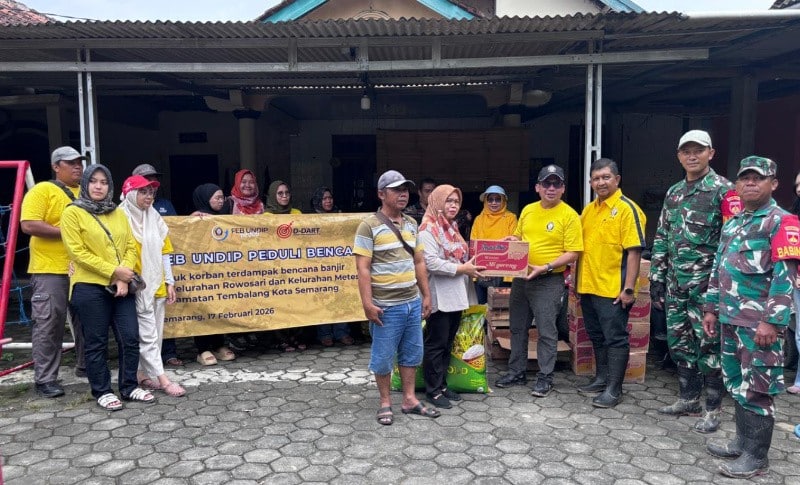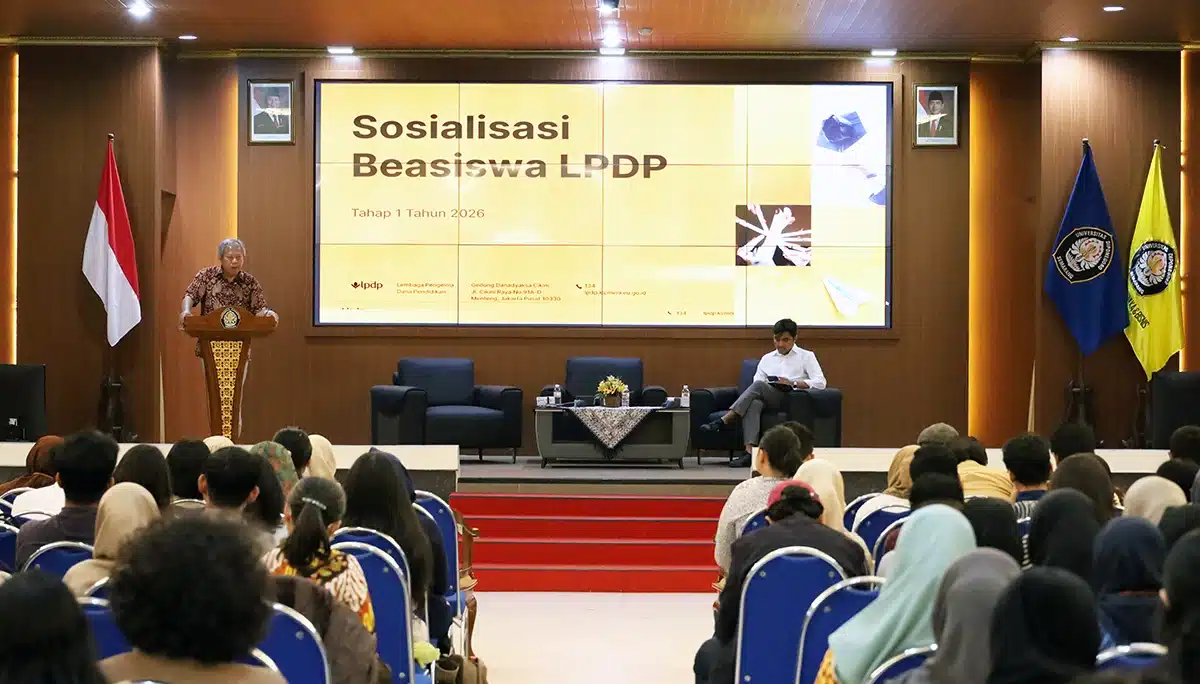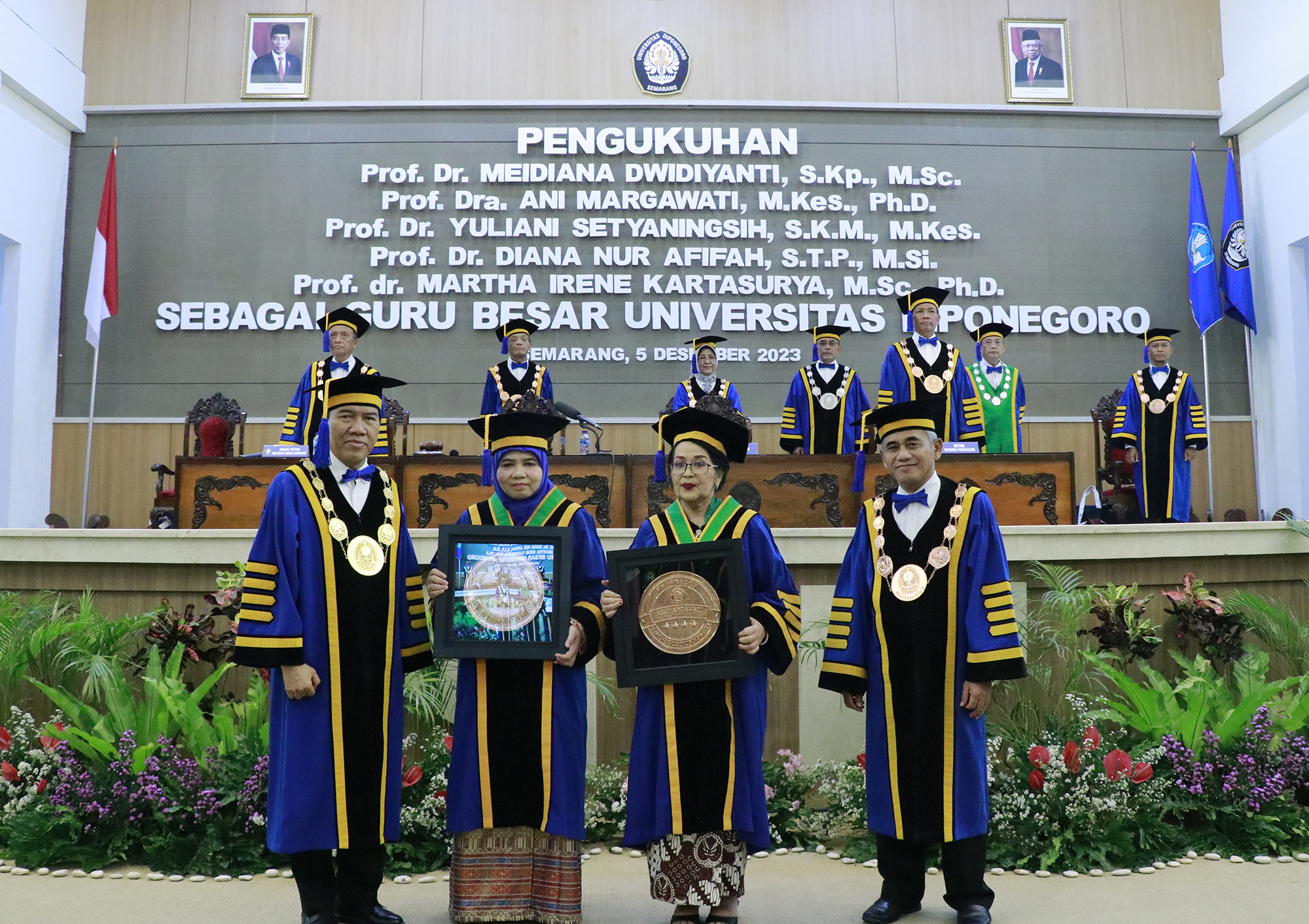Diponegoro University appointed 2 (two) professors from the Faculty of Medicine in Prof. Sudarto, S.H. Building, Tembalang (5/12). This professor inauguration event is a series of activities for the inauguration of 32 (thirty-two) Undip professors, which are scheduled from 5 to 14 December 2023. The two professors who were inaugurated on the first day of the morning session, Tuesday (5/12), were Prof. Dr. Meidiana Dwidiyanti, S.Kp., M.Sc. and Prof. Dra. Ani Margawati, M.Kes., Ph.D. Both are from the Faculty of Medicine.
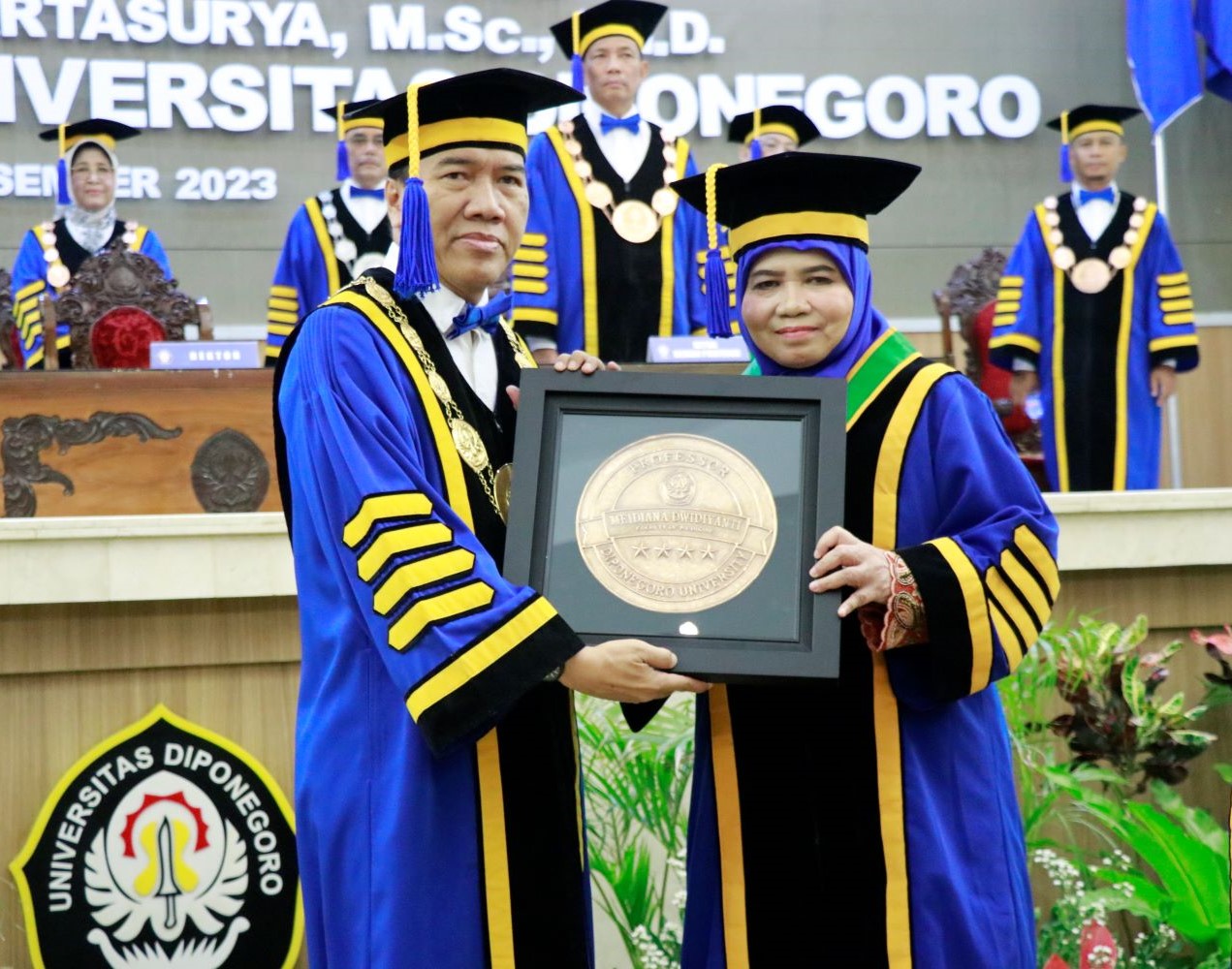
In her scientific speech entitled “Mental Emotional Regulation for Health,” Prof Mediana said that emotional regulation is something that needs to be developed in mental health services so that patients can be independent in solving problems with mental disorders.
“Mental and emotional disorders that are often found in society are stress, anxiety and depression. This problem will result in more serious behavioral problems with mental disorders such as self-injury, suicide and schizophrenia,” said this professor in the field of Psychiatric Nursing.
“The future hope for mental health nursing services is to focus on the ability to regulate emotions in patients and their families independently. In preventive and promotive services, emotional regulation can be used as a tool to measure service outcomes in hospitals or community health centers,” continued Prof. Meidiana.
Meanwhile, Prof. Ani delivered scientific material on “Efforts to Overcome Nutrition and Health Problems” said that malnutrition refers to the incidence of stunting, wasting and underweight, as well as micronutrient deficiencies due to continuous malnutrition throughout the life cycle, especially in women of childbearing age, pregnant women, nursing mothers, babies and toddlers.
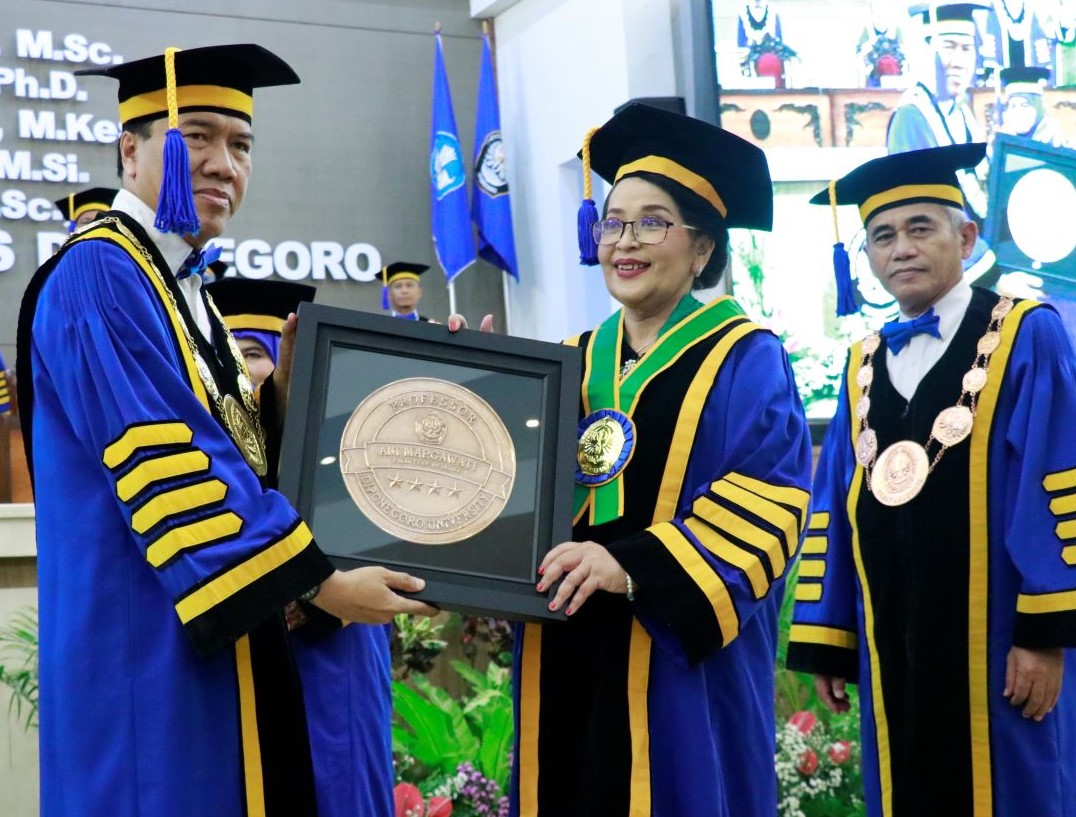
Furthermore, this professor in the field of Maternal and Child Nutrition and Nutritional Anthropology stated that health anthropology is a branch of human science that studies aspects of biology and human culture from a starting point of view for understanding medicine (medical), the history of medicine (medico-history), medical law (medico-legal), social aspects of treatment (medico-social) and human health problems.
“By carrying out health anthropology studies using qualitative methods that bring researchers closer to the research subjects, it is hoped that the roots of health problems, especially those related to behavior and culture, will be discovered, which can be resolved with various programs and interventions, especially to change behavior,” she concluded. (LW-Public Relations)



